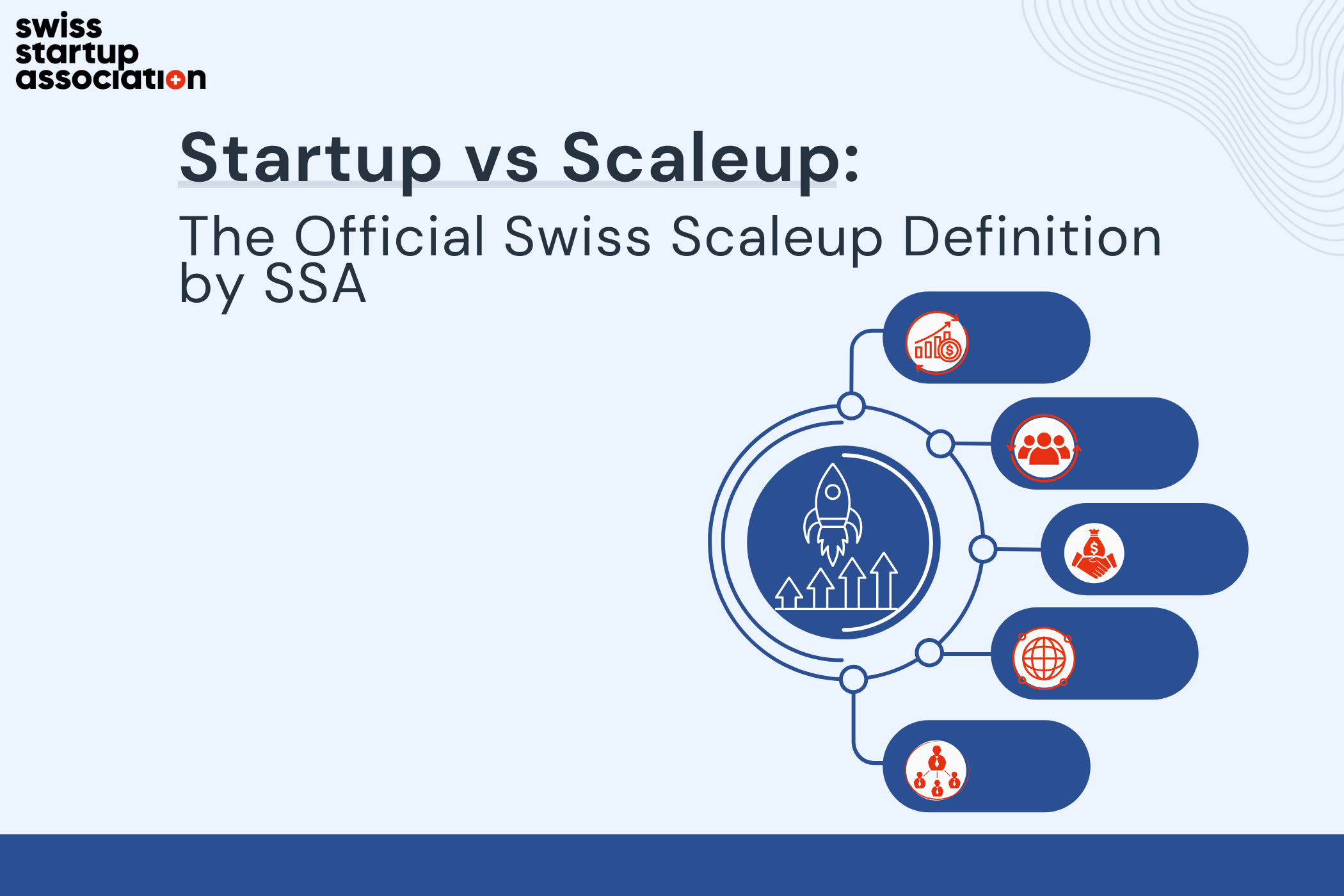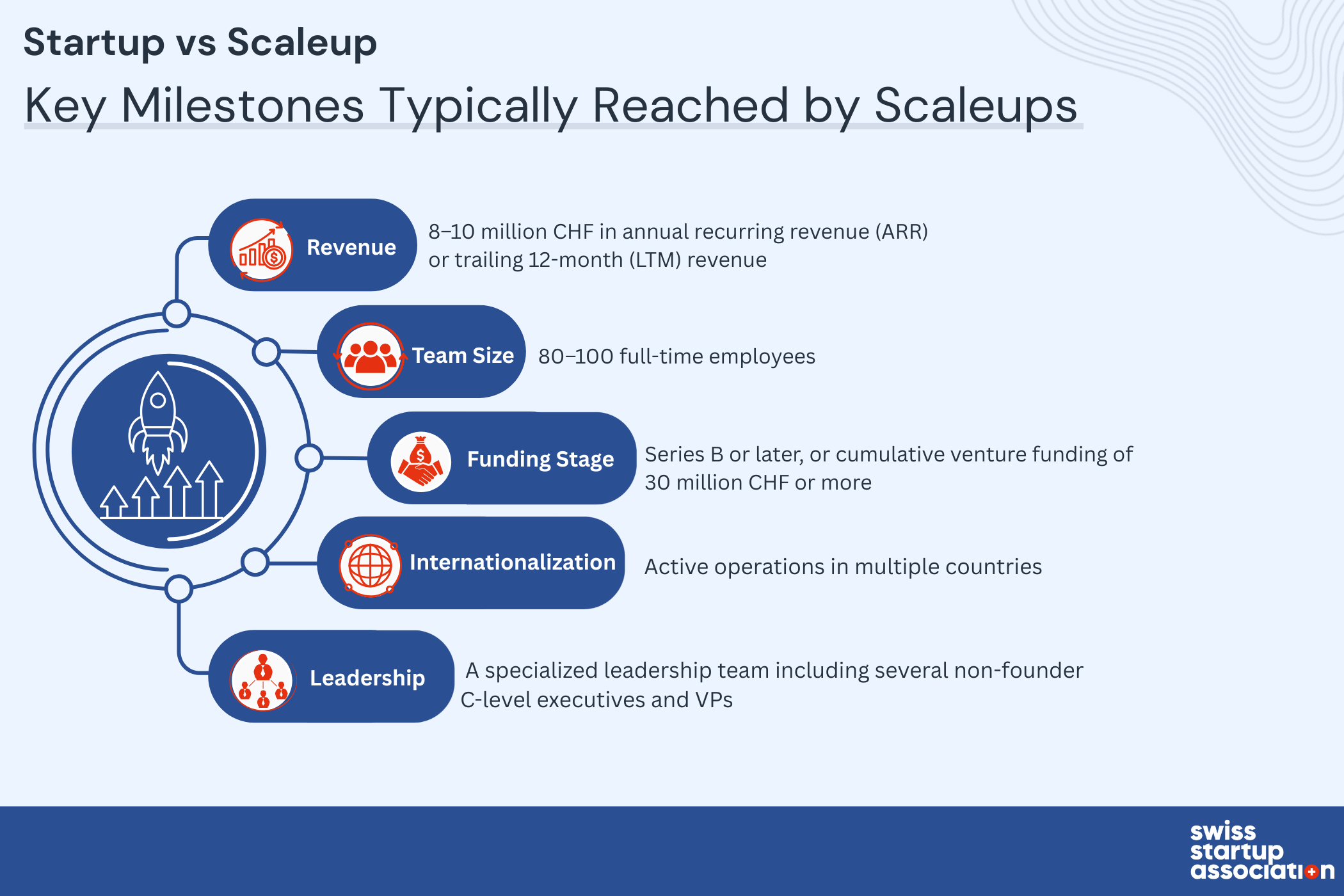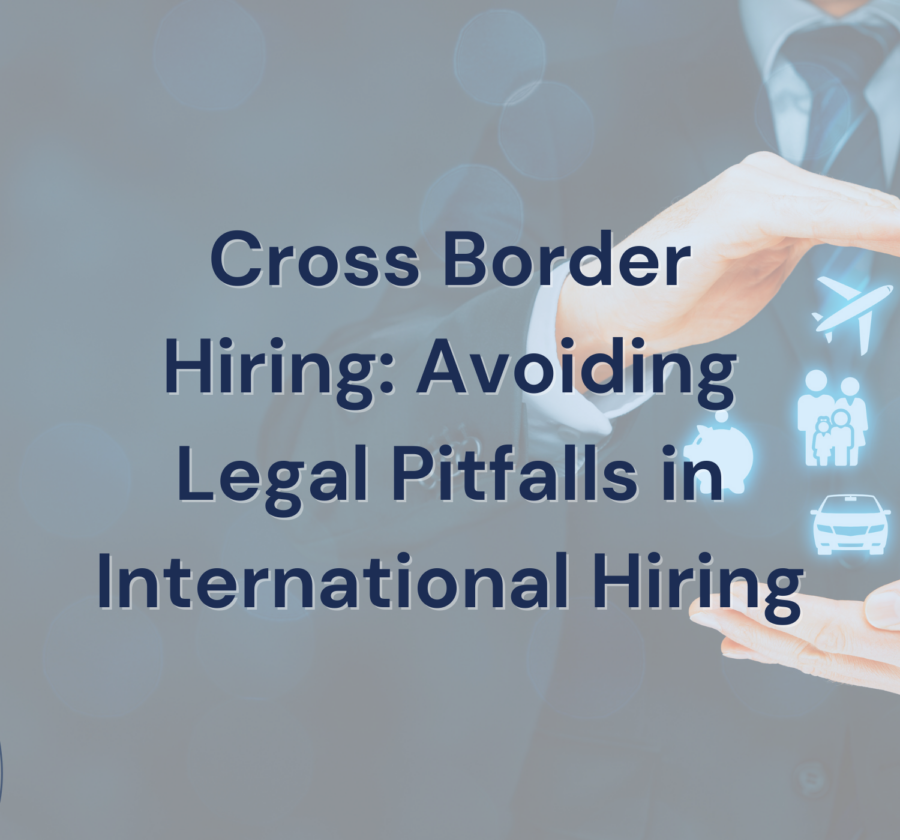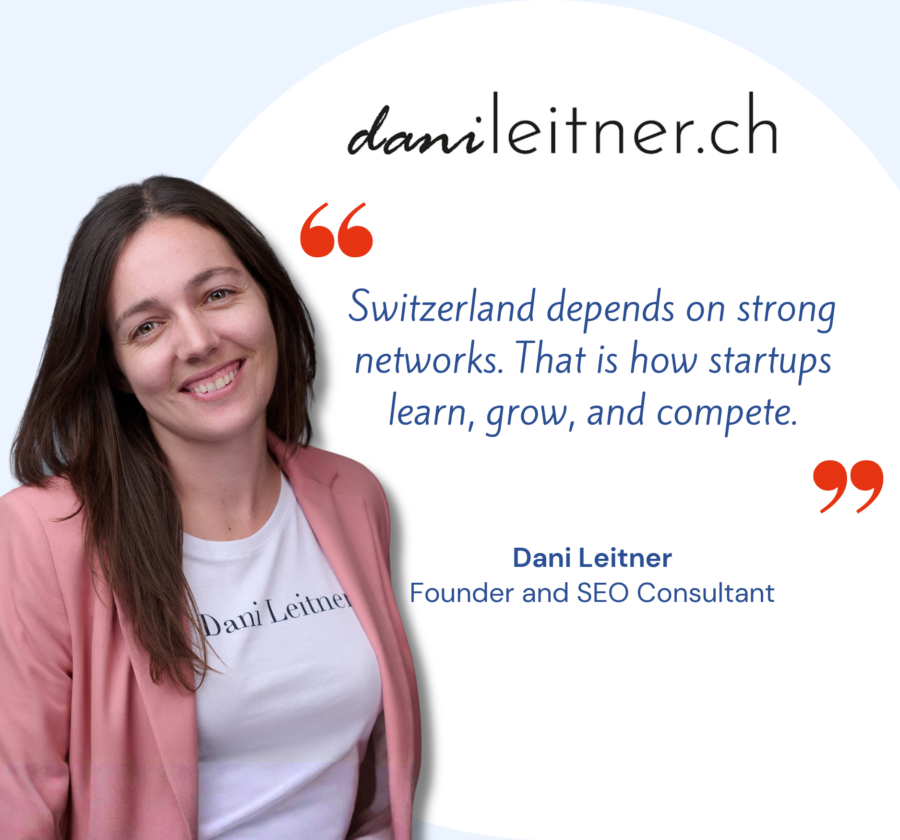
Startup vs Scaleup: The Official Swiss Scaleup Definition by SSA
Why it matters
In Switzerland, there’s no clear or consistent definition of what a scaleup is. While the term is widely used across the Swiss startup ecosystem, the criteria vary, making it difficult for stakeholders like policymakers, investors, and the SSA to identify and support these companies effectively.
Yet a clear definition is essential – not just for classification, but for targeted support. Scaleups are key drivers of economic growth: they create quality jobs, attract international capital, and serve as role models for future founders and the entire Swiss startup ecosystem.
That’s why the SSA has developed a structured definition tailored to the Swiss context, aligned with international benchmarks. As the voice of Switzerland’s startup and scaleup community, we’re committed to enabling the best possible conditions for high-growth companies through advocacy, education, and community.
Definition, Thresholds, and Key Criteria
Defining scaleups across all sectors is challenging, as growth trajectories and capital intensity can vary widely. However, what unifies all scaleups is that they have reached product-market fit and are now facing the well-known “pain of scaling” – the moment when systems, processes, and approaches that worked in the early startup phase start to break, requiring the company to evolve into a more enterprise-grade organization.
While this transformation can look different depending on the industry, scaleups typically pass several of the following thresholds:
- 💰 Revenue: 8–10 million CHF in annual recurring revenue (ARR) or trailing 12-month (LTM) revenue
- 👥 Team Size: 80–100 full-time employees
- 📈 Funding Stage: Series B or later, or cumulative venture funding of 30 million CHF or more
- 🌍 Internationalization: Active operations in multiple countries
- 🧑💼 Leadership: A specialized leadership team including several non-founder C-level executives and VPs

Common Challenges
As companies grow into the scaleup phase, they face challenges that are fundamentally different from early-stage “chaos”. Growth now depends less on founder energy and more on structure, specialization, and strategic discipline across every part of the business:
- Go-to-market no longer scales organically: Founder-led sales and ad-hoc customer management stop working. Companies must build structured GTM teams, customer success functions, and repeatable processes, or risk burning out while missing growth targets.
- Communication and alignment breakdown: At 80 to 100 employees, informal coordination fails. Teams drift, silos form, and clarity suffers. The answer is layers of management, clearer roles, and disciplined goal-setting, often introduced for the first time.
- Capital brings pressure, not freedom: Significant funding raises expectations. Scaleups must shift from opportunism to deliberate planning, strategic prioritization, and disciplined execution, all under investor scrutiny and the need to show sustainable, scalable growth.
- International expansion multiplies complexity: Time zones, cultural gaps, and local market nuances create friction. Add legal, tax, and compliance layers, and global growth demands maturity in planning, internal control, and regional adaptation.
- Specialized leadership changes the game: Founders can’t cover every function anymore. Bringing in experienced executives is essential, but so is enabling strong governance, integration, and cross-functional alignment to prevent fragmentation and misfires.
All scaleups face some or many of those challenges, so enabling a dedicated arena for exchange is crucial to facilitate learning from each other and avoiding costly mistakes.
How We Apply the Criteria and Flexibility
The SSA will use this definition and these criteria as a guiding framework for identifying and supporting scaleups through dedicated initiatives, advocacy work, community offerings, and political lobbying. These benchmarks help ensure transparency and consistency in how we engage with scale-up-stage companies.
However, we also recognize that exceptional companies don’t always grow in the same way. Exceptions can be made for businesses with outstanding growth trajectories or strategic relevance to the ecosystem, even if they fall short on one or two criteria. Nonetheless, these thresholds will remain the standard reference for evaluating scaleup participation in SSA’s programs and activities.
🚀 Are you building a scaleup? Let’s connect!
If you have any questions, please e-mail us at regula@swissstartupassociation.ch!



